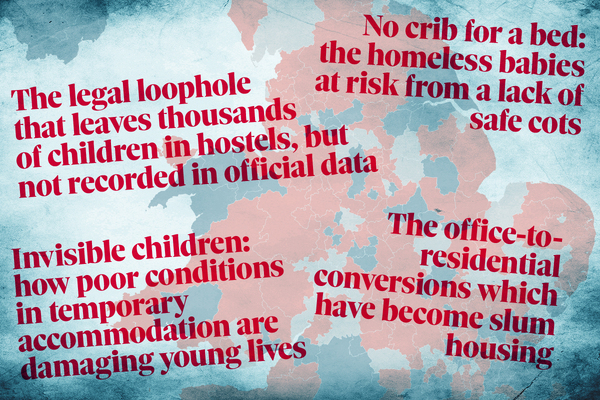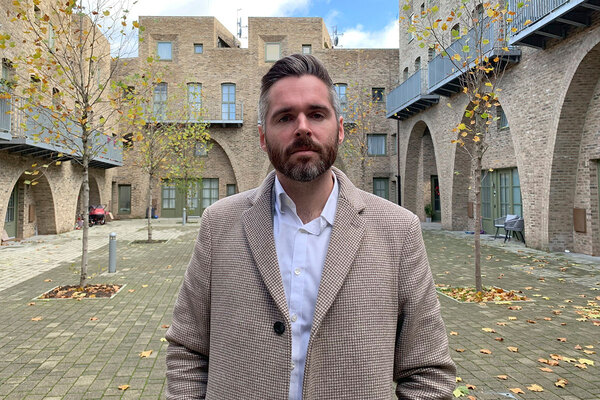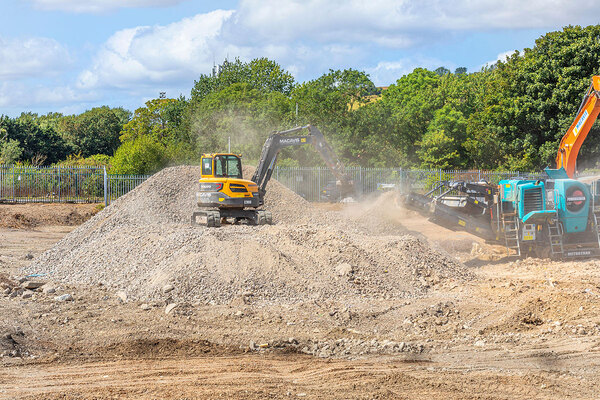You are viewing 1 of your 1 free articles
How housing providers can use grants to meet national demand for temporary accommodation
There are government funds available for registered providers and local authorities to use, but the process is far from straightforward, writes Leo Stevens, partner at Devonshires
As registered providers (RPs) continue to play a critical role in addressing the UK’s urgent housing needs, particularly for vulnerable people such as refugees and those who are homeless, the process of acquiring properties has become a significant focus. Fortunately, there are government funds available for RPs and local authorities (LAs) to utilise.
Unfortunately, this process is far from straightforward, requiring RPs to navigate a complex landscape of legal, financial and operational challenges.
In response to the growing need for temporary accommodation, various funding streams have been made available to RPs and LAs. One of the most significant sources of funding are grants from Homes England. This funding has been instrumental in enabling LAs and RPs to act quickly in securing suitable properties.
These include several schemes designed to help secure short-term housing solutions such as the Affordable Homes Programme, which offers grants to help provide homes and includes funding agreements for LAs and RPs. Additionally, the Rough Sleeping Accommodation Programme provides funding targeted at housing for those at risk of or experiencing homelessness.
Given the limited availability of new housing, many councils have started to buy back homes that were previously sold under the Right to Buy scheme. These properties, often no longer meeting the demands of the open market, are being repurposed as temporary accommodation for vulnerable groups, including refugees and homeless people.
“The funding provided by Homes England and other bodies is pivotal in facilitating these acquisitions, allowing councils to address immediate housing needs by reintroducing these properties into the social housing sector”
The funding provided by Homes England and other bodies is pivotal in facilitating these acquisitions, allowing councils to address immediate housing needs by reintroducing these properties into the social housing sector.
A key factor in ensuring that a property is suitable for purchase is employing experts who understand the specific needs of the social housing sector. Your first step should be to engage with local agents who can identify properties that meet your requirements.
Effective conveyancing goes beyond the basics of property law; it requires a deep understanding of the unique challenges associated with acquiring properties for temporary housing or refugee accommodation.
The importance of having a streamlined processes and procedures that are tailored specifically to the needs of RPs can’t be understated. This includes everything from standardised contracts and search indemnity insurance policies, to comprehensive reports that identify potential issues early in the acquisition process.
By employing conveyancers who are familiar the specific needs of RPs and who are experienced in large-scale conveyancing exercises, RPs can navigate the complexities of property acquisition more effectively, reducing the risk of costly delays or legal obstacles.
One of the primary considerations for RPs when acquiring properties is the impact of various factors on the property’s value and its ability to be mortgaged. Properties intended for temporary housing, especially homes for refugees and the homeless, may face unique challenges in this regard.
Structural issues, such as damp, non-standard construction types (eg large panel construction from the 1960s), cladding and other building safety issues and the presence of invasive species like bamboo and Japanese knotweed, can further complicate the valuation and how mortgageable a property is. RPs must conduct thorough surveys and due diligence to ensure that these factors are accounted for before proceeding with a purchase.
“The importance of having a streamlined processes and procedures that are tailored specifically to the needs of RPs can’t be understated”
Building and survey-related matters, particularly concerning energy performance, are critical in the decision-making process for RPs. The government has set increasingly stringent energy performance standards, and properties that do not meet these requirements can become liabilities rather than assets. Many older street properties are not energy efficient, which affects their value and may impact their suitability for use as long-term social housing.
RPs must assess the energy efficiency of prospective acquisitions, considering both potential impact on operating costs and overall property management. Properties with poor energy performance can face reduced marketability and may require higher ongoing maintenance costs, making them more desirable for short-term use rather than becoming an integral part of an RPs housing stock.
Legal and social restrictions are another significant challenge in the acquiring properties for specified temporary use. Covenants, restrictions on disposal and consent requirements from management companies or freeholders can pose substantial obstacles.
For example, a restrictive covenant might prevent the property from being used for temporary housing, or a management company might refuse consent for subletting, particularly if the property is intended to house refugees or homeless people.
In the current social climate, where protests and local opposition can influence decision-making, RPs must be prepared to address these challenges proactively. It is essential for RPs to engage in thorough legal due diligence, identifying any potential covenants or restrictions that could impede the intended use of the property. Where possible, early engagement with stakeholders, including management companies and local communities, can help mitigate these risks and facilitate smoother transactions.
In conclusion, the acquisition of properties by RPs is a complex and multifaceted process that requires careful planning, skilled personnel and a deep understanding of both legal and operational challenges. By doing so, RPs will be able to navigate these challenges successfully and provide much-needed temporary accommodation.
Leo Stevens, partner, Devonshires
Sign up to the Social Housing Annual Conference 2024
The two questions of whether to invest funds in revitalising existing stock or in the development of new affordable homes, and how to raise social housing investment, are inextricably linked.
That is why the Social Housing Annual Conference is now running alongside the Inside Housing Development and Regeneration Summit, giving you the opportunity to gather comprehensive insights to inform your key strategic decisions in just one day.
Join 600 senior leaders with a common vision of funding and delivering quality, affordable homes and places for tenants and residents.













